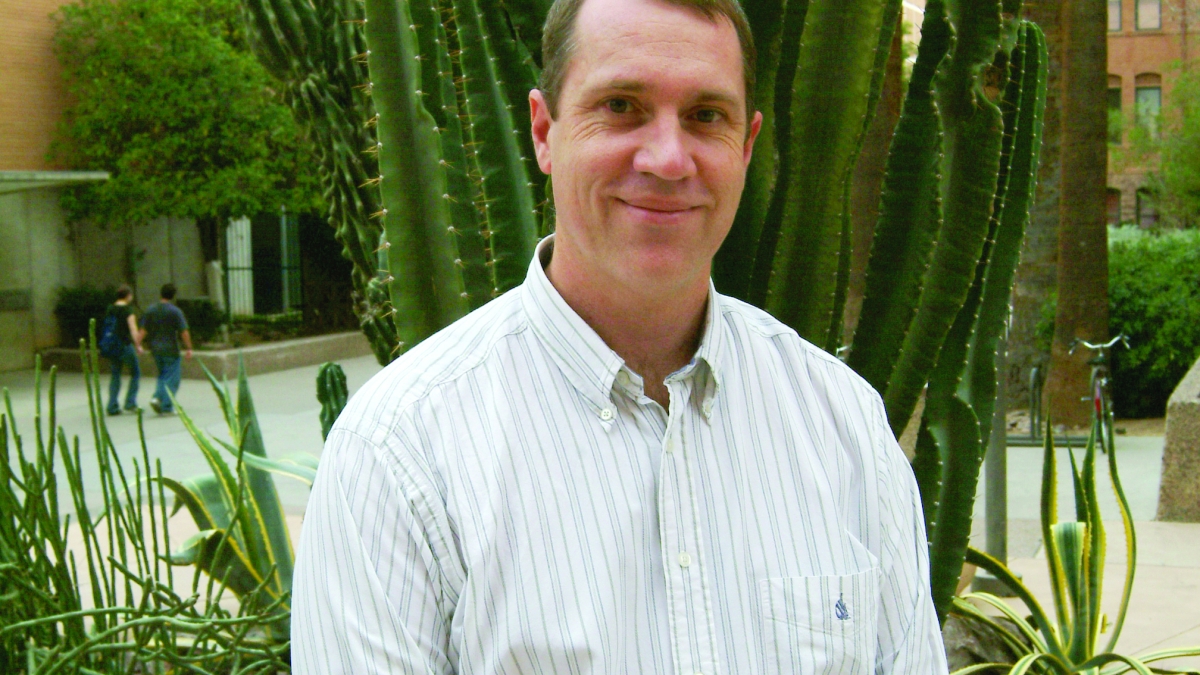Alan Rawls appointment advances ASU-clinical partnerships

Alan Rawls, associate professor of genomics, evolution and bioinformatics in ASU's School of Life Sciences, has been named to the position of vice provost, from associate vice provost, with the Office of Clinical Partnerships.
Arizona State University’s Office of Clinical Partnerships plays an important role in facilitating collaborations with Arizona health care constituents and promoting cooperation among university activities. The office also functions as a hub for innovation at the intersections of groups who traditionally would not work together.
“There has been a rapid increase in the scope and complexity of ASU’s efforts, and Alan’s promotion reflects the growing importance of innovations in health care delivery, discovery and education to the overall mission of the university,” said Robert E. Page, Jr., university provost.
The university’s investments are reflected in the recent recruitment of several national thought leaders to ASU in nursing, health care delivery and sustainable health, such as:
• Foundation Professor Denis Cortese and Robert Smoldt, director and associate director of ASU’s healthcare delivery and policy program
• Nobel Laureate Leland Hartwell, Virginia G. Piper Chair in Personalized Medicine and faculty member in Ira A. Fulton Schools of Engineering, and Michael Birt, director of the Center for Sustainable Health in ASU Biodesign Institute
• Keith Lindor, executive vice provost and dean of the College of Health Solutions
• Teri Pipe, dean and professor of the College of Nursing and Health Innovation, and Shirley Weis, special adviser to ASU’s president Michael M. Crow and professor of practice in the W. P. Carey School of Business and College of Nursing and Health Innovation
• Victor Trastek, former CEO and vice president of Mayo Clinic, and professor William Riley, with the School for the Science of Health Care Delivery
Project HoneyBee is one example of how ASU-clinical collaborations can transform research, training and education of the health workforce and health outcomes. Recently featured at a plenary session at the 2014 mHealth Summit, the largest mobile health event in the world, Project HoneyBee demonstrated ASU’s strengths for innovation and interdisciplinary approach. Professor Hartwell is HoneyBee’s chief scientist. The project seeks to develop, test and validate wearable sensor technology to improve patient outcomes and reduce costs. The group has launched eight observational clinical trials through partnerships with a range of health systems in Phoenix. Each proof-of-principle project is embedded with a doctoral nurse practitioner student from the College of Nursing and Health Innovation.
“In collaboration with forward-looking health care systems in the community, Arizona can serve as the testing grounds for transformative solutions to the national challenge of delivering high-quality, affordable health care across the socioeconomic strata of the U.S.,” said Rawls.
The university continues to invest strategically in the growth of biomedical research initiatives that keep ASU at the cutting edge in personalized genetic medicine and the development of innovative therapies for critical diseases and disorders. Partnerships with area hospitals and health care organizations provide sites to generate inspiration, test innovations and administer real-world training of its students, and also to bring research back to the community in which it exists.
These activities are layered on top of the primary mission of the university, which is to train a workforce who are willing to adapt and lead in response to the challenges of delivering health care in the state and nationally.
Please note: the current clinical placement coordination processes for students in the College of Nursing & Health Innovation will remain the same.